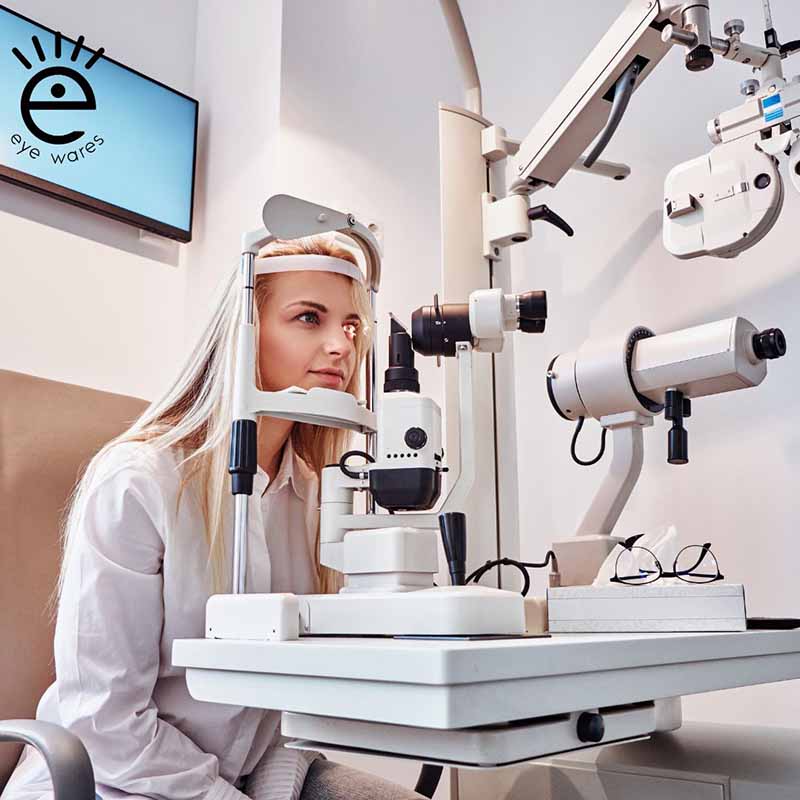Eyes and Your Health
People often refer to the eyes as windows to the soul, and they can also reveal our state of health.
Your eyes aren’t just the window to your soul — they can also reveal critical information about your overall health. Regular eye exams conducted by a certified optometrist or eye doctor can help flag potential health issues. Healthcare professionals can utilize them to detect small signs of health problems early, enabling them to treat them sooner.
Below, we explore how the eyes can serve as early warning systems for various diseases and health conditions.
High Cholesterol
High cholesterol levels can have detrimental effects on your cardiovascular health, but they have little to no visible symptoms. Oftentimes, the only way to know whether or not you have high cholesterol is through a blood test or lipid profile.
However, signs of high cholesterol are often visible in the eyes. During an eye exam, your eye doctor may observe yellowish deposits, known as xanthelasma, around your eyelids.
These deposits can indicate high cholesterol levels in your blood. Early detection of high cholesterol through an eye exam can assist in making lifestyle changes and seeking medical assistance. This can ultimately reduce the risk of heart disease and stroke.
Thyroid Disease
Thyroid diseases, such as hyperthyroidism and hypothyroidism, can have noticeable effects on your eyes. That’s because they affect the muscles and fatty tissues within the eyes. In the case of hyperthyroidism, your eye doctor may detect bulging eyes, known as exophthalmos or eyelid retraction. On the other hand, hypothyroidism may cause drooping eyelids and swollen or puffy eyes.
Identifying these eye manifestations during an exam can prompt further evaluation and management of thyroid disease. An eye doctor can find signs of thyroid disease during a regular eye exam, and additional testing can confirm it.
Diabetes
Diabetes can affect the blood vessels in the back of the eye, a condition known as diabetic retinopathy. During an eye check-up, the doctor can identify signs of diabetic retinopathy. These signs include leaking blood vessels, swelling, and abnormal blood vessels.
When these vessels leak blood or fluid, it can cause blurry vision and eventually lead to blindness. Regular eye exams are important for people with diabetes to check and control their eye health. Early action can stop vision loss.
Multiple Sclerosis
Multiple sclerosis (MS) is a chronic autoimmune disease that affects the central nervous system. While MS primarily affects the brain and spinal cord, it can also cause visual disturbances.
MS can affect the optic nerve, leading to blurred vision or loss of color vision. During an eye check-up, the doctor may notice changes in the optic nerve or abnormalities in the visual field. These changes and abnormalities could be early signs of MS.
Cancer
Believe it or not, an eye exam can detect certain types of cancer, such as ocular melanoma.
During the exam, your eye doctor may notice strange-colored spots. They may also notice changes in the shape and size of the iris or retina. These changes could indicate ocular melanoma.
Stroke
When a disruption occurs in blood flow to the brain, it causes a stroke, resulting in brain damage. This can cause loss of vision or double vision. During eye checkups, optometrists can detect changes in retinal blood vessels such as narrowing, blockages, or bleeding. These can indicate an increased risk of stroke.
Liver Problems
Signs of liver disease can appear in the form of yellow eyes or jaundice. When the liver is compromised, it releases excessive bilirubin, a yellow pigment that leaks into the bloodstream. As a result, the whites of the eyes take on a yellow tinge—a visible sign of potential liver issues.
Autoimmune and Rare Disorders
Besides the diseases mentioned above, an eye exam can also flag autoimmune diseases and rare health conditions. For instance, a brown ring around the eye’s cornea can indicate Wilson’s disease, a rare inherited disorder. Different eye changes, like redness or detachment of the retina, can also show sickle cell disease, a genetic blood disorder.
Bulging eyes, while usually indicative of thyroid diseases, can also be a sign of Grave’s disease, an autoimmune condition. Uveitis, an inflammation caused by the immune system, can also indicate other autoimmune conditions like rheumatoid arthritis, lupus, or ankylosing spondylitis. Symptoms of uveitis may include redness, light sensitivity, and blurred vision.
Schedule Your Eye Appointment Today
Eye health is a mirror of our overall well-being. Regular eye exams are important for good vision and finding diseases and health problems.
The advent of advanced technology, like Optos retinal imaging, enables optometrists to take an ultra-widefield view of the retina. Optos takes pictures of your whole retina using wide-angle imaging. This helps eye doctors find diseases early. It’s thanks to Optos that Eye Wares and Dr. Lauren Agnew are able to detect not only eye diseases but also minor changes in the eye that may signify a larger health issue.
Regular eye doctor visits are important for both your vision and overall health care. Schedule your appointment today and stay on top of your health.


